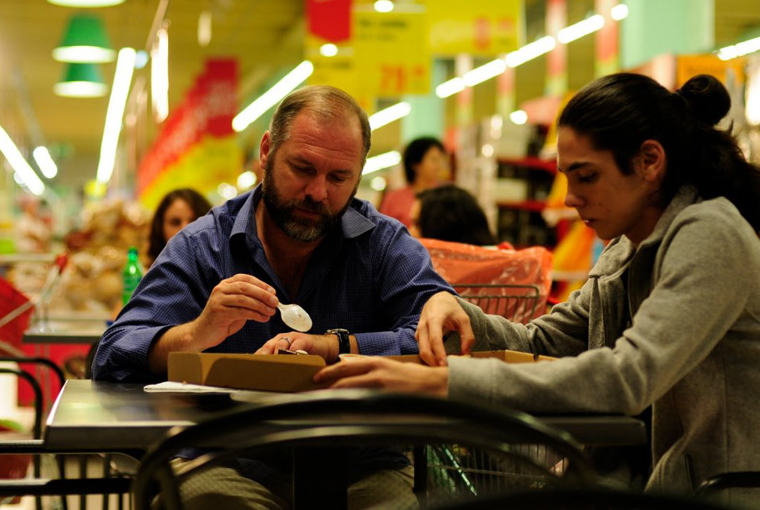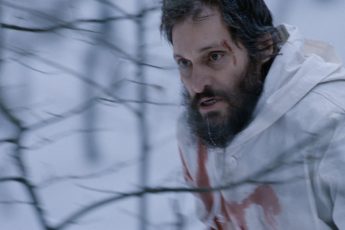Velicanu(s)
Constantin Popescu’s Principles of Life (Principii de viaţă , 2010)
Vol. 6 (June 2011) by Konstanty Kuzma
Constantin Popescu’s Principles of Life is the story of Emilian Velicanu, a middle-aged, cynical family father who tries to deal with his tense family and professional life – a humorous slice of life story combining the typical themes of current Romanian cinema with a comic aimlessness. Principles of Life is highly paced, with short episodes exposing Velicanu’s ignorant attitude towards his environment. We follow Velicanu over the course of 24 hours, during which he argues with one of his customers at work, his ex-wife, and his son, who, in the eyes of Velicanu, all question the authority of his judgement. Nevertheless, Velicanu does not perceive the conflict with his environment as a problem that he is causing himself. Velicanu is not only unable to communicate with others, but denies the very existence of a communication problem, reducing the story to a dynamic, line-driven drama.
Popescu queezes his characters into lengthy, long lense shots that focus the attention of the audience on the action. Although the script by Razvan Radulescu and Alexandru Baciu seems forced at times, the dialogues are saved by the confident performance of Vlad Ivanov. Ultimately, Velicanu faces the same communication problems as the chief of police in Police, Adjective (also played by Vlad Ivanov), but still the audience identifies with him thanks to his comic appearance. The comedic touch of Popescu’s piece obscures its connection to the themes of the Romanian New Wave, making it an alternative approach to the serious pathos of the movement. What remains is a society presented as an estranged collective that is harmed by people like Velicanu, but is simultaneously unable to deal with them. In Principles of Life, there is no one who is willing to confront Velicanu, although clearly he is an archetype character. Society consists of people like Velicanu, and change would not simply demand defeat over an individual, but over established rhetorics of a sickly society.
Unfortunately, Popescu is not fully consequent in delivering his pretense. In spite of the fact that the film peaks in Velicanu enforcing his authority on his teenage son Catalin, the conflict is not substantiated until the very end of the film. Velicanu is trying to survive by the rules that he has set for himself – be it with Catalin or his job. In the end, it seems contingent that it is the relationship with his son that Velicanu tries to solve, although it evokes the vague, but promising notion that Velicanu tries to change Catalin because he himself is incapable of changing. Of course, Velicanu uses violence not out of cruelty, but out of the comprehension that in the reality of his self, violence is the only remaining measure to prove his authority. Principles of Life is more a character study of Velicanu than a structured drama that seeks to win the audience with a plot-driven question; and unlike in the case of a coming of age story, there is no imperative character change. The beating of Catalin is an aesthetic progression and a symbolic one, not one of conflict. To remain in the logic of the world (and the character) that Popescu is depicting, the film closes where it began…




Leave a Comment